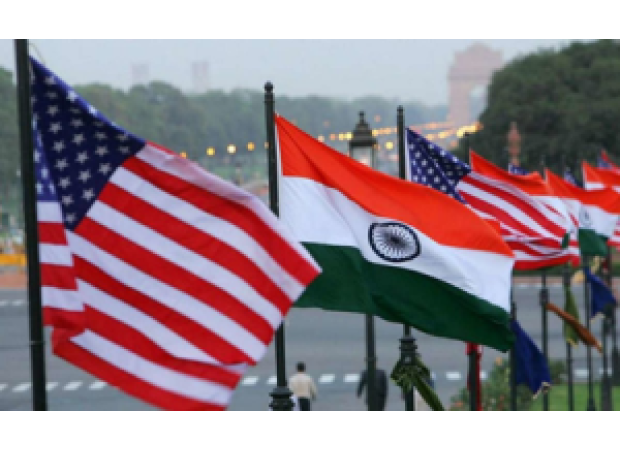India and the US are currently discussing a trade agreement, but there is no agreement on agricultural, dairy, and genetically modified products, according to sources.
Negotiations between India and US continue for interim trade deal, with no concessions on agriculture, dairy, and GM products.

Sources have revealed that negotiations between India and the US are still ongoing for an interim trade deal. However, there will be no compromise on certain issues such as duty concessions on agriculture items, dairy, and genetically modified products. The two nations are currently in talks for a bilateral trade agreement and are hoping to reach an agreement by fall of this year.
It has also been reported that an interim trade deal is being considered before the first tranche. The engagement between the two countries is ongoing, but India has made it clear that there are certain red lines that cannot be crossed when it comes to agriculture, dairy, and genetically modified products. This is due to religious sentiments and the use of animal feed in the American dairy sector. Therefore, it will not be possible for India to provide duty concessions on such goods, as it has never done so in the past.
Commerce and Industry Minister Piyush Goyal has stated in Parliament that the government will take all necessary steps to safeguard and promote national interest. The government has even engaged with various stakeholders, including exporters and industry, to gather feedback on the situation. Negotiations for a bilateral trade agreement between India and the US began in March and have seen five rounds of talks so far. The sixth round is scheduled for August 25.
During these talks, India's chief negotiator Rajesh Agrawal and Assistant US Trade Representative Brendan Lynch have been discussing the implications of the new tariffs imposed by US President Donald Trump on dozens of countries. These tariffs, which include 25% duties on goods from India, have raised concerns and tensions over potential disruptions in the global trade landscape. They are set to come into force on August 7.
In the past few years, India has had a trade surplus with the US, with the highest being USD 41 billion in 2024-25. This was followed by USD 35.32 billion in 2023-24 and USD 27.7 billion in 2022-23. India's main exports to the US include drug formulations and biologicals, telecom instruments, precious and semi-precious stones, petroleum products, vehicle and auto components, gold and other precious metal jewellery, ready-made garments of cotton, and products of iron and steel. On the other hand, imports consist of crude oil, petroleum products, coal, coke, cut and polished diamonds, electric machinery, aircraft, spacecraft and parts, and gold.
India is seeking the removal of the additional tariffs imposed by the US and is also looking for easing of tariffs on steel, aluminium, and the auto sector. These issues are crucial in the ongoing trade pact negotiations, and India has reserved its right under WTO norms to impose retaliatory duties. On the other hand, the US is seeking duty concessions on certain industrial goods, automobiles, wines, petrochemical products, agri goods, dairy items, apples, tree nuts, and genetically modified crops.
In the April-June quarter of this financial year, India's merchandise exports to the US increased by 22.8% to USD 25.51 billion, while imports rose by 11.68% to USD 12.86 billion. India is also seeking duty concessions for labour-intensive sectors such as textiles, gems and jewellery, leather goods, garments, plastics, chemicals, shrimp, oil seeds, grapes, and bananas in the proposed trade pact. The negotiations between India and the US continue, and both sides are hopeful of reaching an agreement that is beneficial for both nations.






